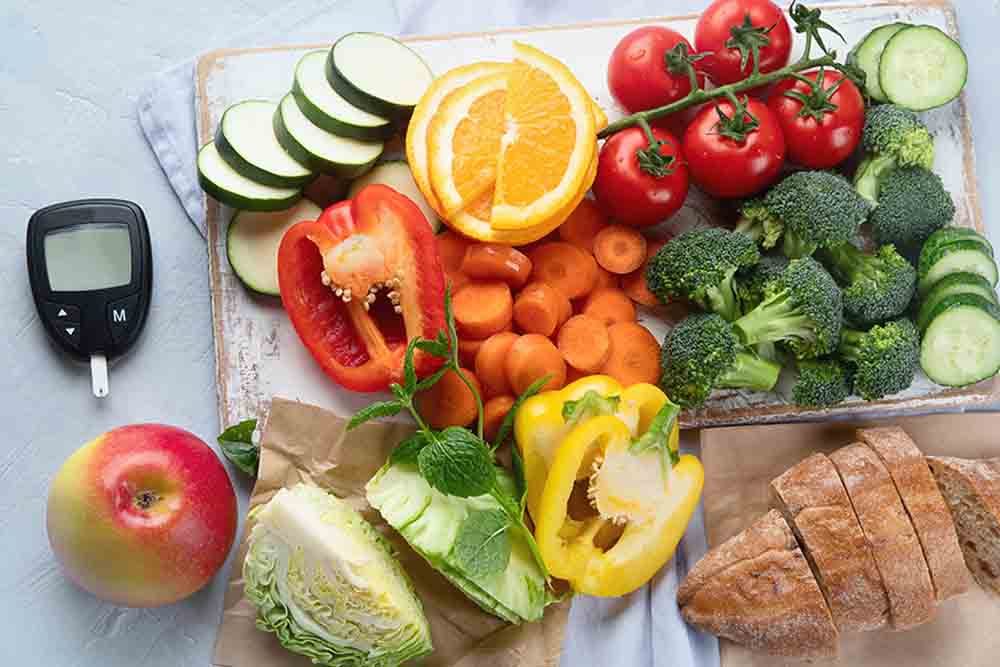Best Food for Lifestyle Diseases
Diabetes is a disease that occurs when your blood glucose, also called blood sugar, is too high. Blood glucose is your main source of energy and comes from the food you eat. Insulin, a hormone made by the pancreas, helps glucose from food get into your cells to be used for energy. Sometimes your body doesn’t make enough—or any—insulin or doesn’t use insulin well. Glucose then stays in your blood and doesn’t reach your cells.

Figuring out the best foods to eat when you have diabetes doesn’t have to be tough. To keep things simple, your main goal should be managing your blood sugar levels. It’s also important to eat foods that help prevent diabetes complications like heart disease. Your diet can have a major role in preventing and managing diabetes. Here are the 16 best foods for people living with diabetes, both type 1 and type 2.
#1. Fatty fish
Salmon, sardines, herring, anchovies, and mackerel are great sources of the omega-3 fatty acids DHA and EPA, which have major benefits for heart health. Getting enough of these fats on a regular basis is especially important for people with diabetes, who have an increased risk of heart disease and stroke.
Fatty fish contain omega-3 fats that can help reduce inflammation and other risk factors of heart disease and stroke. Plus, it’s a great source of protein, which is important for managing blood sugar.
#2. Leafy greens
Leafy green vegetables are extremely nutritious and low in calories. They’re also very low in digestible carbs, or carbs absorbed by the body, so they won’t significantly affect blood sugar levels. Spinach, kale, and other leafy greens are good sources of many vitamins and minerals, including vitamin C.
Leafy green vegetables are rich in nutrients like vitamin C as well as antioxidants that protect your heart and eye health.
#3. Avocados
Avocados have less than 1 gram of sugar, few carbohydrates, a high fiber content, and healthy fats, so you don’t have to worry about them raising your blood sugar levels. Avocado consumption is also associated with improved overall diet quality and significantly lower body weight and body mass index (BMI). This makes avocados an ideal snack for people with diabetes, especially since obesity increases the chances of developing diabetes.
Avocados have less than 1 gram of sugar and are associated with improved overall diet quality. Avocados may also have properties specific to diabetes prevention.
#4. Eggs
Regular egg consumption may reduce your heart disease risk in several ways. Eggs may decrease inflammation, improve insulin sensitivity, increase your HDL (good) cholesterol levels, and modify the size and shape of your LDL (bad) cholesterol.
Eggs may improve risk factors for heart disease, promote good blood sugar management, protect eye health, and keep you feeling full.
#5. Chia seeds
Chia seeds are a wonderful food for people with diabetes. They’re extremely high in fiber, yet low in digestible carbs. Chia seeds may help you achieve a moderate weight because fiber reduces hunger and makes you feel full. Chia seeds may also help maintain glycemic management in people with diabetes.
Chia seeds contain high amounts of fiber, which may help you lose weight. They also help maintain blood glucose levels.
#6. Broccoli
Broccoli is one of the most nutritious vegetables around. A half cup of cooked broccoli contains only 27 calories and 3 grams of digestible carbs, along with important nutrients like vitamin C and magnesium.
Broccoli is a low calorie, low carb food with high nutrient value. It’s loaded with healthy plant compounds that may help protect against various diseases.
#7. Strawberries
Strawberries are high in antioxidants known as anthocyanins, which give them their red color. They also contain polyphenols, which are beneficial plant compounds with antioxidant properties. Consumption of polyphenols from strawberries and cranberries improved insulin sensitivity in adults with overweight and obesity who didn’t have diabetes.
Strawberries are low sugar fruits that have strong anti-inflammatory properties and may help improve insulin resistance.
#8. Flaxseeds
Also known as common flax or linseeds, flaxseeds have a high content of heart-healthy omega-3 fats, fiber, and other unique plant compounds. A portion of their insoluble fiber is made up of lignans, which may help decrease heart disease risk and improve blood sugar management. Flaxseeds may also help lower blood pressure.
Flaxseeds may help reduce inflammation, lower heart disease risk, decrease blood sugar levels, and improve insulin sensitivity.